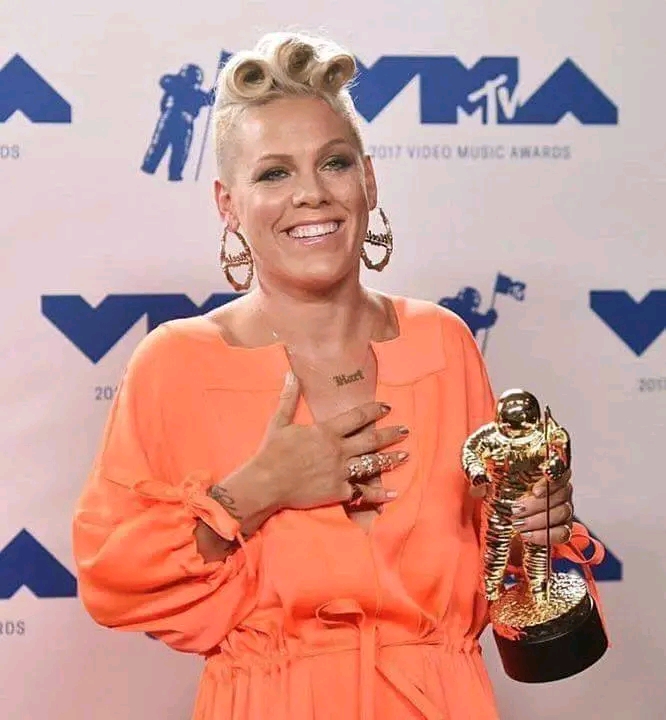Unbelievable Music World Shockwaves as Global Pop Icon, Stage-Defying Performer, and Empowerment Symbol Pink Alecia Beth Moore Reportedly Rejects Multi-Million Dollar Contract Offer That Could Have Cemented Her Status as One of the Highest-Paid Entertainers in the Industry, Sparking Endless Speculation, Heated Debate Among Fans, Analysts, and Insiders While Opening Up Questions About Artistic Freedom, Authenticity, and the Future of Her Career in a Changing Music Landscape
In a development that has stunned the global music industry, Alecia Beth Moore—known worldwide by her stage name Pink—has reportedly rejected a contract worth several millions of dollars, leaving fans, critics, and entertainment analysts scrambling to understand the motivations behind such a bold and, to many, unthinkable decision.
According to multiple insiders, the offer was structured as a long-term performance and recording contract that would have locked Pink into a lucrative deal covering touring rights, future albums, and exclusive appearances. Early reports suggest the deal could have exceeded the $150 million range, making it one of the most generous packages ever offered to a female artist at her stage in an already legendary career. Yet, in what industry observers are calling both unbelievable and admirable, Pink is said to have declined the proposal outright.
A Decision That Shocks But Also Fits Pink’s Legacy
For those who have followed her journey, the move may not be as surprising as it initially appears. Pink has built her career not on industry conformity but on rebellion, authenticity, and a commitment to self-expression. From her breakout in the early 2000s with hits that pushed back against stereotypes, to her high-flying, circus-inspired live performances that defy gravity, Pink has consistently chosen artistry over formulas.
Rejecting such a massive contract suggests that once again, she is prioritizing her independence. A source close to her camp noted: “Pink has always believed in creating on her own terms. While this offer was financially extraordinary, the structure of the deal would have limited her freedom to experiment and speak her truth in the way her fans have come to expect. That’s not who she is.”
The Offer That Could Have Changed the Industry
The contract, reportedly brokered by one of the world’s largest entertainment conglomerates, was designed to secure Pink as the face of a multi-year global touring strategy. Beyond album sales, the deal involved exclusive streaming partnerships, branded merchandise collaborations, and immersive fan experiences tied to emerging technologies such as VR concerts and AI-enhanced music personalization.
Industry experts argue that Pink’s acceptance would have signaled a shift in how veteran artists engage with modern revenue streams. Rejecting it, however, places her in a unique position as an artist who refuses to trade autonomy for financial dominance.
Fan Reactions: Pride and Confusion
Fans took to social media almost immediately after reports of the rejection surfaced. Reactions were split, but the common thread was deep admiration. One Twitter user wrote: “This is why I love her. Pink isn’t about money. She’s about us, the fans, the music, the raw energy. Respect forever.” Another commented: “Unbelievable! Who turns down THAT much money? But then again, it’s Pink. She’s never played by the rules.”
Still, some fans expressed worry about what the decision could mean for future tours or album releases. With Pink being a touring powerhouse—her shows consistently rank among the highest-grossing of any artist—many wondered if this might signal a slowdown in her global appearances.
Analysts Weigh In
Music business analysts, meanwhile, see this as a watershed moment. By rejecting the deal, Pink has placed herself alongside artists like Prince, Taylor Swift, and George Michael—icons who famously fought for their independence in an industry often driven by financial control.
“Pink’s move is both risky and inspiring,” said Dr. Melanie Carter, a professor of music business at NYU. “She’s telling the world that she doesn’t need to be owned, no matter the dollar signs attached. The gamble is whether this empowers more artists to demand autonomy, or whether the system continues to reward those who play along.”
What This Means for Pink’s Future
Speculation now swirls around what Pink plans to do next. Could she be preparing to launch her own independent label? Is she eyeing more philanthropic work, given her known passion for charity, animal rights, and social justice causes? Or is this simply a pause to recalibrate before the next chapter in her career?
Several insiders suggest that Pink may already be developing a surprise project, independent of corporate control, that could merge her activism with her music. Others believe she may step further into filmmaking, documentaries, or even creative mentorship roles for younger artists.
A Defining Moment in a Legendary Career
Regardless of what comes next, this decision marks a defining moment in Pink’s career. In an era where celebrity culture is increasingly tied to brand deals, sponsorships, and commercial partnerships, her refusal to be bound—even for millions—reasserts her identity as one of music’s few remaining rebels.
The unbelievable rejection of a multimillion-dollar contract is not just a headline; it’s a statement. It tells fans, industry insiders, and fellow musicians that Pink Alecia Beth Moore remains exactly who she has always promised to be: fearless, unpredictable, and deeply committed to her art.
For an artist who has soared above arenas, suspended by nothing more than wires and sheer willpower, perhaps rejecting millions is just another leap into the unknown—a leap that only Pink could make.

